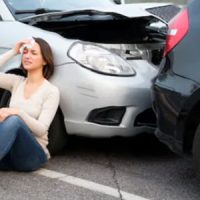Common Issues In Florida Rear-End Accidents

Florida rear-end accidents, like any other type of collision, can range in severity from a minor fender bender to a devastating collision. In most cases, determining fault in a rear-end accident is a simple matter, as Florida law states that it is the driver in the rear who bears the greater responsibility to avoid a collision. This issue can, however, end up proving difficult to resolve, especially when multiple vehicles were involved in the crash. Read on to learn more about some of the most common problems that accident victims face when pursuing compensation after a rear-end collision.
Rear-End Accidents are Common
Rear-end collisions occur much more often than most people realize. In fact, the National Highway Traffic Safety Administration (NHTSA) estimates that these kinds of crashes account for more than 30 percent of all accidents. They are more common than any other type of crash and are responsible for more than 31 percent of car accident-related injuries and around seven percent of accident fatalities. Because they occur so often and are so dangerous, it’s important for Florida drivers to have a thorough understanding of the issues they may face if involved in such a collision.
Determining Fault
The primary issue in Florida rear-end accident cases is determining who was at fault for the collision. Florida’s no-fault laws state that generally, regardless of fault, accident victims must file claims with their own insurers in order to recover compensation. If, however, coverage doesn’t meet the extent of the victim’s damages, then he or she can seek reimbursement for the remainder of the costs from the at-fault driver’s insurer. In the majority of rear-end cases, the rear driver is deemed responsible for an accident. There are, however, exceptions to this rule. A driver who suddenly pulls in front of another car, or who reversed suddenly or braked unexpectedly, for instance, could bear some responsibility for the accident. Similarly, if it is determined that a vehicle malfunction or unsafe road condition led to a crash, then a manufacturer or government agency could also be held liable for the collision.
Multiple Vehicles
Another issue that can complicate recovery after a Florida rear-end accident is the likelihood that multiple vehicles were involved in the collision. This is a relatively common occurrence in rear-end accidents, where it is more likely that the initial crash will lead to a series of collisions, where one crash starts off a chain reaction of other rear-end accidents. Again, determining fault in these cases can be extremely complicated, with multiple parties often held liable for a portion of the accident-related losses.
Set Up a Meeting with Our Legal Team
If you or a loved one were injured in a rear-end collision, you may be facing an uphill battle when it comes to recovery. To ensure that you are adequately represented and have the best possible chance of obtaining compensation for your losses, consider reaching out to an experienced Fort Lauderdale car accident lawyer for help. You can speak with a member of our dedicated legal team about your options by calling Boone & Davis at 954-566-9919 today.
Sources:
weartv.com/news/local/38-year-old-woman-killed-in-three-vehicle-crash-in-okaloosa-county
forbes.com/advisor/legal/auto-accident/rear-end-collision/
